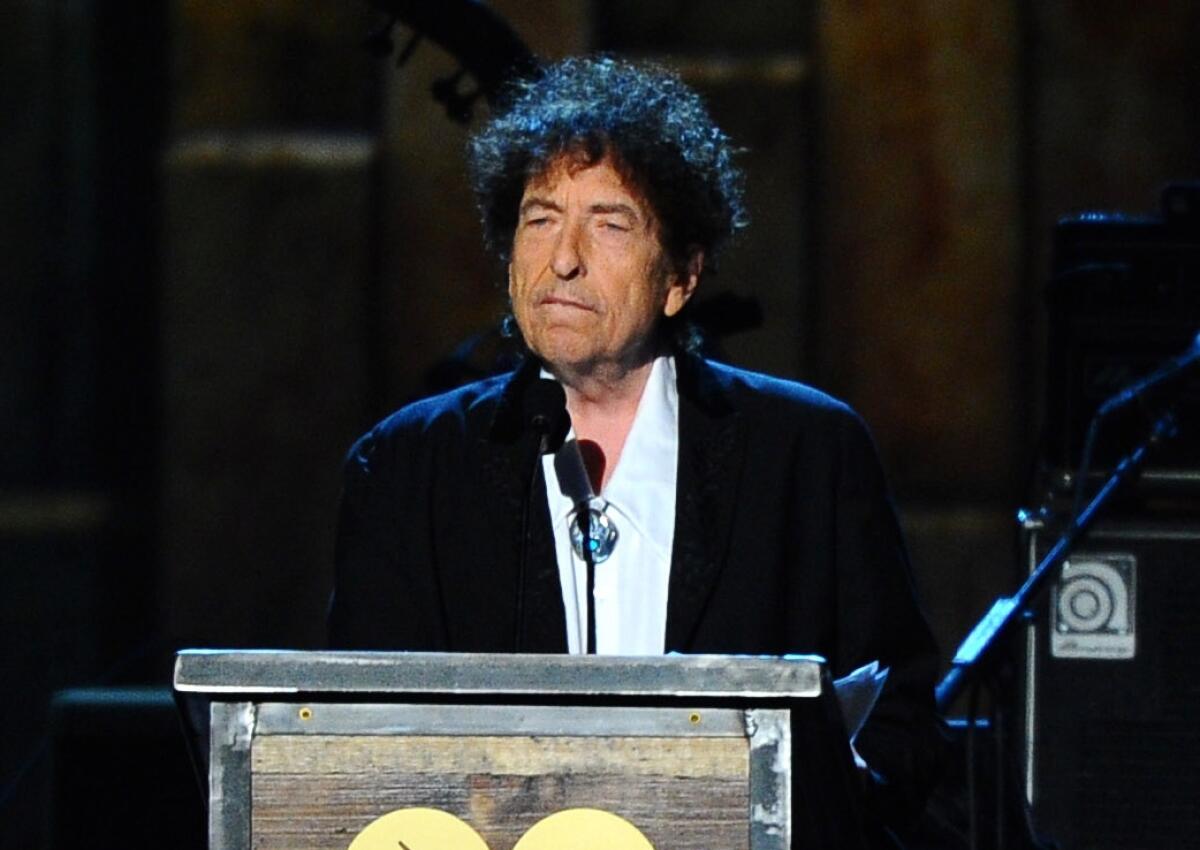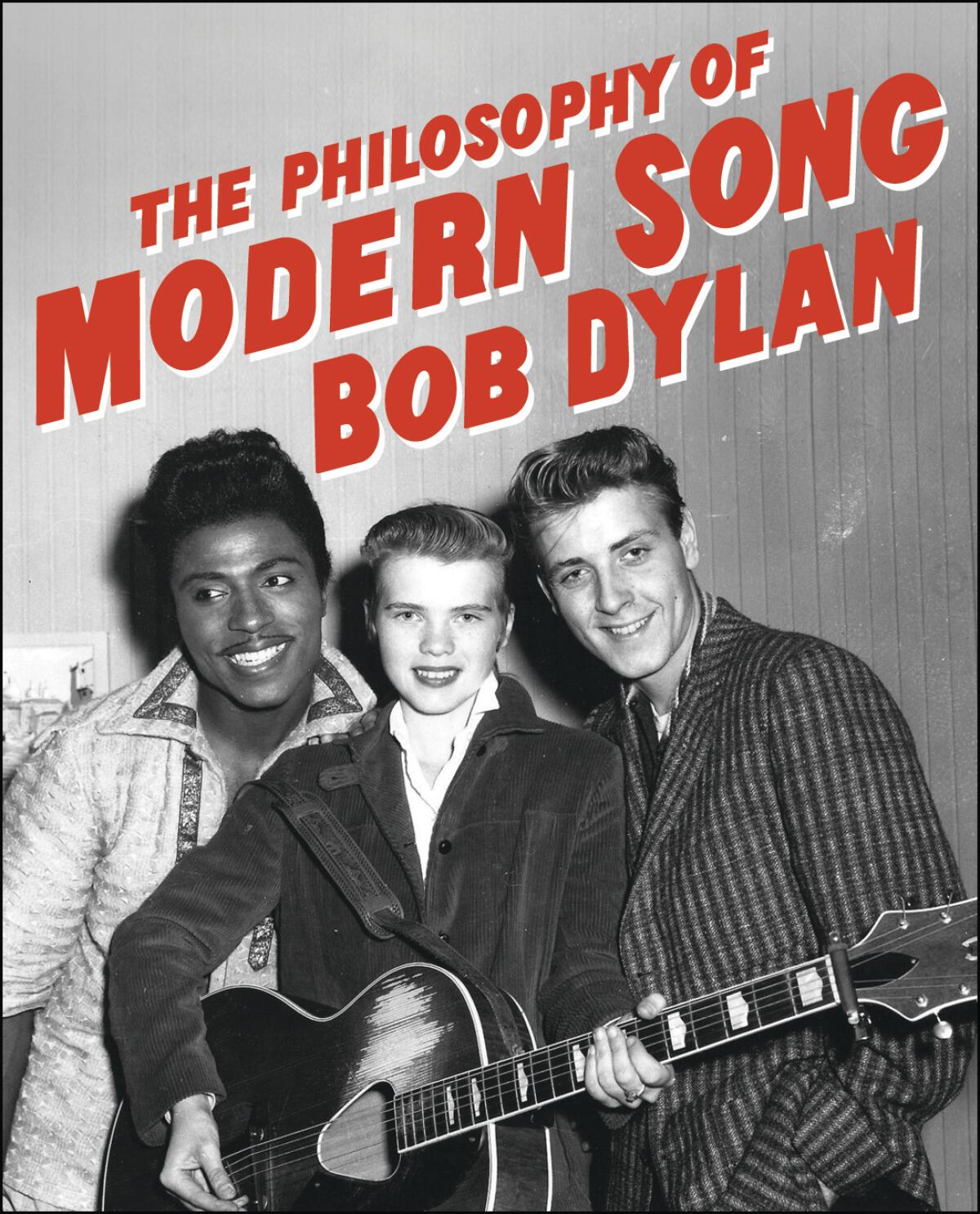Bob Dylan blames vertigo and pandemic for use of autopen to sign ‘autographed’ books

Bob Dylan didn’t hand-sign hundreds of copies of his new book “The Philosophy of Modern Song.” Now he says his decision to digitally sign the expensive editions instead was an “error in judgment.”
The “Like a Rolling Stone” singer addressed the controversy Saturday on Facebook, after fans who paid $600 each for the signed, limited edition of the book complained about suspicious similarities among their respective purchases — this after publisher Simon & Schuster included a letter with each copy verifying the authenticity of the musician’s “hand-signed” work.
Simon & Schuster apologized to customers who paid $600 for a signed, limited-edition copy of Bob Dylan’s new book and got a replica autograph instead.
“I’ve been made aware that there’s some controversy about signatures on some of my recent artwork prints and on a limited-edition of Philosophy Of Modern Song. I’ve hand-signed each and every art print over the years, and there’s never been a problem,” the 81-year-old Pulitzer Prize winner and Nobel laureate wrote on Facebook.
From there, the music legend detailed how the COVID-19 pandemic and his struggle with vertigo — a condition that gives people a false sense that they or their surroundings are spinning or moving — have further hindered his ability to meet contractual deadlines in recent years.
“[I]n 2019 I had a bad case of vertigo and it continued into the pandemic years. It takes a crew of five working in close quarters with me to help enable these signing sessions, and we could not find a safe and workable way to complete what I needed to do while the virus was raging. So, during the pandemic, it was impossible to sign anything and the vertigo didn’t help,” the singer-songwriter explained. “With contractual deadlines looming, the idea of using an auto-pen was suggested to me, along with the assurance that this kind of thing is done ‘all the time’ in the art and literary worlds.”
“Using a machine was an error in judgment and I want to rectify it immediately. I’m working with Simon & Schuster and my gallery partners to do just that,” he added, signing off the note with “my deepest regrets.”
In ‘The Philosophy of Modern Song,’’ the Nobel laureate blends together music criticism, beat poetry, wolverine snarls and Lear-on-the-heath tirades.
“Autopen” is a digital reproduction of a real signature. Customers said they noticed at least 17 variations of Dylan’s script when they compared their books.
Simon & Schuster, which also issued an apology about the signatures last week, took the book off sale and initiated the process of issuing immediate and automatic refunds to all customers who bought the book, a spokesperson for the company told The Times.

“The Philosophy of Modern Song,” which was published Nov. 1 and is Dylan’s first book since his 2004 memoir “Chronicles: Volume One,” consists of 66 chapters about 66 of his favorite songs by artists including Nina Simone, Elvis Presley, Willie Nelson, the Clash, the Who and his childhood hero, Little Richard. Only 900 of the $600 limited editions were available in the U.S., and each arrived with a letter from Jonathan Karp, chief executive of Simon & Schuster, that served as “confirmation that [each] copy has been hand-signed by Bob Dylan.”
“To those who purchased THE PHILOSOPHY OF MODERN SONG limited edition, we want to apologize. As it turns out, the limited edition books do contain Bob’s original signature, but in a penned replica form,” the publisher said in a statement. “We are addressing this immediately by providing each purchaser with an immediate refund.”
Karp also personally responded to those who emailed him, informing them of the forthcoming refund and saying they could keep their copy of the book at no cost, a spokesperson said last week.
More to Read
Sign up for our Book Club newsletter
Get the latest news, events and more from the Los Angeles Times Book Club, and help us get L.A. reading and talking.
You may occasionally receive promotional content from the Los Angeles Times.












